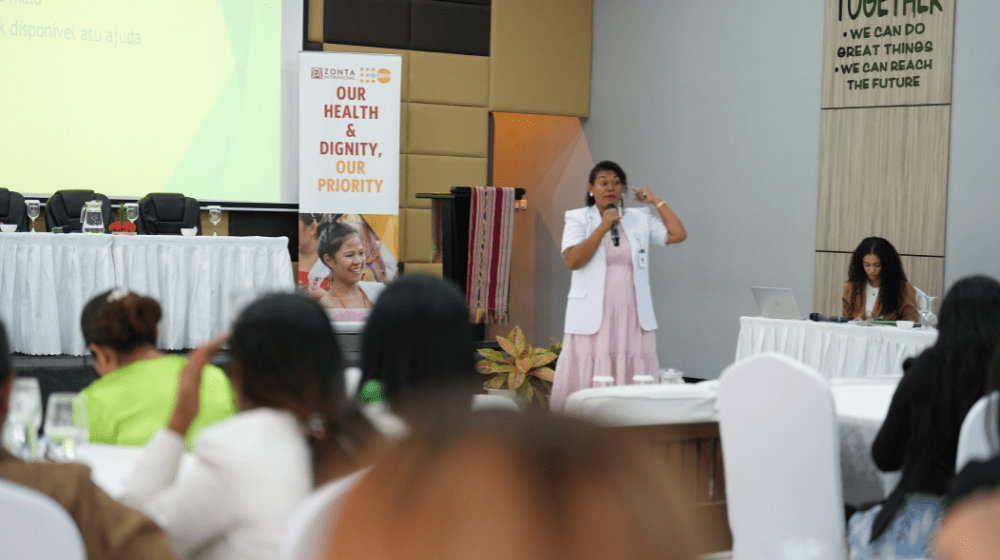Dili, 15 August 2024- The Ministry of Health, in collaboration with the Timor-Leste Midwives Association (APTL) and with the financial support from UNFPA through the Zonta International project, conducted a one-day sensitization workshop on the Health Sector's Response to GBV for 100 midwives from Dili Municipality. At the opening of the event, UNFPA's Assistant Representative in Timor-Leste Dr. Domingas Bernardo emphasized GBV as a human rights violation and a public health issue with multidimensional consequences, with, one-third (33%) of women aged 15-49 have experienced physical violence since the age of 15. The health care system is the only institution that interacts with almost every woman at some point in her life and women exposed to violence visit health services more frequently than non-abused women. Health service providers especially midwives, have a critical role to play in providing survivor-centered care and services for women living with violence.
Dr. Bernardo further stated that, UNFPA Timor-Leste implement GBV portfolio programme in close collaboration with/supporting Ministry of Health to enhance efforts to ensure that all women and girls in Timor-Leste to enjoy their right to live free from gender-based violence, and access quality essential services by improving and enhancing the capacity of health sector to provide a quality service to GBV survivors. This included capacity building to health care providers and establishment of safe spaces and improvement of health facility readiness well-equipped with medical and non-medical items and job aids to provide first-line support and other components of essential health service package as required to ensure privacy and confidentiality. UNFPA remains committed to supporting Ministry of Health, including APTL to prevent and respond to GBV.
Dra. Cidalia Isilda F. Belo, representing the Department of Maternal and Child Health at the Ministry of Health, highlighted that the GBV program has now been fully integrated into the national health agenda. "The Ministry of Health, together with UNFPA, has trained healthcare providers, including midwives and doctors, across the country. We will continue to collaborate with partners to enhance the health sector's capacity to respond to GBV, with the ultimate goal of ending Gender-Based Violence in Timor-Leste," she said.
Timor-Leste has made strong policy responses against GBV through its national laws and policies and through its commitments to international conventions addressing the issue. In 2010 Timor-Leste passed and promulgated Law Against Domestic Violence (LADV) and followed by the development, approval and implementation of two National Action Plan on GBV (NAP-GBV) 2012-2014, NAP-GBV 2017-2021 and NAP-GBV 2022-2032) to support implementation of the LADV.
To support the operationalization of the NAP-GBV, the Ministry of Health, with technical assistance from UNFPA, developed an implemented a National Guideline in 2018 and a Training Package in 2021-2022 for the health sector's response to GBV, including Intimate Partner Violence. These efforts include capacity building to health care providers, improving health facilities, procuring necessary medicines and supplies, and equipping Safe Spaces and health facilities with job aids to provide comprehensive care for GBV survivors.


